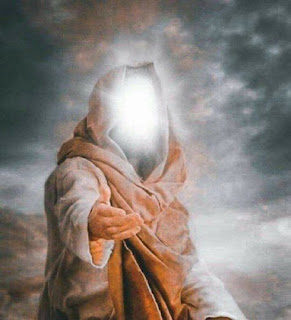Ismail ibn Ja’far, part 3: The Faqih of Ahlulbayt
IMPORTANT NOTE:
Some websites have edited their old articles to add information from this article onto it. However, the research presented in my article is fully original.
—
Ismail ibn Ja’far, the faqih of Ahlulbayt
Given Ismail’s closeness to his father, his way of thinking reflected that of Imam al-Sadiq to a very big extent - as shown in part 2.
That - couple with an assumption of Ismail being the next Imam, made the Shi’a ask Ismail for jurisprudential questions and information about previous prophets, etc - and assuming that Ismail’s opinion equaled that of Imam al-Sadiq.
The same reason why Shi’a accepted for example Imam al-Sadiq’s narration of an event from the time of Rasul Allah or to provide fiqh rulings, without demanding the that the Imam prove his information by providing an isnad.
“Every hadith I tell you - narrate it from me, and I narrate it from my father, who narrates it from my grandfather, from Rasul Allah, from Jibraeel, from Allah.
Every hadith I tell you has this isnad”. (Wasa’il al-Shi’a, vol 27, page 97)
—
This is why in the following two ahadith in al-Kafi, Ismail gives information without narrating it back to Imam al-Sadiq:
(Al-Kafi, vol 7, page 388)
“I asked Ismail ibn Ja’far: ‘When is the testimony of a boy permissible?’
He (Ismail) said: ‘If he reaches ten years of age’
I (narrator) said: ‘And his matter (marriage) is permissible?’
He (Ismail) said: ‘The Messenger of God, may God’s prayers and peace be upon him and his family, entered upon Aisha when she was ten years old, and it is not permissible to enter upon a girl until she is a woman.
Thus, if a boy is 10 years old - his marriage and testimony are both permissible.’”
1 - علي بن إبراهيم، عن محمد بن عيسى، عن يونس، عن أبي أيوب الخزاز قال:
سألت إسماعيل بن جعفر متى تجوز شهادة الغلام، فقال: إذا بلغ عشر سنين قال: قلت:
ويجوز أمره؟ قال: فقال: إن رسول الله صلى الله عليه وآله دخل بعائشة وهي بنت عشر سنين وليس يدخل بالجارية حتى تكون امرأة فإذا كانللغلام عشر سنين جاز أمره وجازت شهادته
(Al-Kafi, vol 7, page 432)
“Ismail ibn Ja’far said:
Two men argued with Dawud, peace be upon him, over a cow, and this one came with evidence that it was his, and this one came with evidence that it was his. He said: So Dawud, peace be upon him, entered the mihrab and said: O Lord, he has helped me to judge between these two. The cow is in his hand, so push it to the other and strike his neck...”
21 - محمد بن يحيى، عن أحمد بن محمد، عن الحسين بن سعيد، عن فضالة بن أيوب عن داود بن فرقد، عن إسماعيل بن جعفر قال: اختصم رجلان إلى داود عليه السلام في بقرة فجاء هذا ببينة على أنها له وجاء هذا ببينة على أنها له قال: فدخل داود عليه السلام المحرابفقال: يا رب إنه قد أعياني أن أحكم بين هذين فكن أنت الذي تحكم فأوحى الله عز وجل إليه اخرج فخذ البقرة من الذي في يده فادفعها إلىالآخر واضرب عنقه
- Here are however, some examples of narrations from his father
(Al-Mahasin, vol 2, page 499)
“Narrated Ismail ibn Ja’far, from his father, from Ali (a) that he said:
‘Honey has in it a cure [to disease]’”
- المحاسن: عن أبيه وعبد الله بن المغيرة، عن إسماعيل بن جعفر، عن أبيه، عن علي عليه السلام قال: العسل فيه شفاء
Narrated Ismail ibn Ja’far, from his father, from his grandfather (a) that he said:
The Night of Decree is an illuminating, bright night - not hot nor cold. Its stars are like the rising Sun”
- ومن ذلك من الجزء الخامس من كتاب أسماء رجال أبي عبد الله عليه السلام عن إسماعيل بن جعفر بن محمد، عن أبيه، عن جدهعليهم السلام قال: ليلة القدر ليلة بلجة (1)، لا حارة ولا باردة، ونجومها كالشمس الضاحية.



